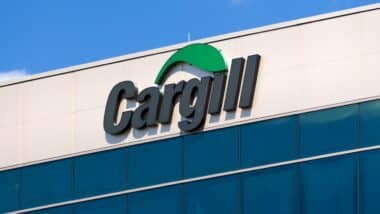 In 2016 and 2017, the Wells Fargo fake accounts scandal made headlines across the country. The fake accounts scandal centered around employees of the bank that were opening unauthorized additional credit card and bank accounts for current customers of the financial institution.
In 2016 and 2017, the Wells Fargo fake accounts scandal made headlines across the country. The fake accounts scandal centered around employees of the bank that were opening unauthorized additional credit card and bank accounts for current customers of the financial institution.
Additionally, these same employees also signed patrons up for unrequested and sometimes costly services without their knowledge. The motivation for this activity was allegedly to meet high sales quotas and improve employee performance metrics.
The Wells Fargo fake accounts scandal centered on over 3.5 million reportedly phony credit card and bank accounts. National regulators of the financial industry alluded that the leadership of the bank encouraged the outlandish employee behavior by setting the bar unrealistically high for sales.
Civil litigation over the fake accounts scandal was settled by the bank for $142 million. The settlement came with a promise of change in how Wells Fargo determines its institutional growth and employee performance goals.
Fake Accounts Scandal Investigation
According to a Reuters article, a U.S. bank regulator said last month that the Wells Fargo fake accounts scandal sparked a review of the industry practices. The review was undertaken by the Office of the Comptroller of the Currency (OCC) and took a hard look at over three dozen large to moderate size financial institutions.
The OCC reportedly didn’t uncover any widespread problems among the other banks that mirrored the Wells Fargo fake accounts scandal and brought the review to timely conclusion at the end of 2017. However, according to the report, the OCC did uncover internal sales practices in some institutions that were questionable and demonstrated certain weaknesses.
According to Reuters, the OCC review has not been made public and those banks whose problems drew their attention have since responded promptly to inquiry and corrected issues they were notified to be of concern to the regulatory agency.
Some of the actions taken by the banks have been to close unrequested accounts and refund improper fees generated from them. Because corrective action has been taken by the financial institutions covertly identified by the OCC, no infractions have been brought to public light.
Despite this closed mouth approach, there have been allegations levied against several banks of opening accounts in customers’ names that are unauthorized. Attorneys are investigating accusations against other major banks, including TD Bank, Bank of America, Capital One, HSBC, Royal Bank of Canada, and BOK Financial.
If you are a patron of any of these financial institutions or others unnamed and have experienced suspicious and unauthorized bank fees on your account, you may have a legal claim. When additional accounts are opened without your permission, bank employees have to transfer funds to make these viable.
When this transfer occurs, the patron will not only have the unusual bank fee debited from his checking account, but he or she might also have an overdraft fee levied if the funds removed meant the difference between maintaining a positive or negative balance. Additionally, unauthorized credit card accounts may change consumers’ credit reports.
Do YOU have a legal claim? Fill out the form on this page now for a free, immediate, and confidential case evaluation. Some of the banks being investigated include:
- Bank of America
- BOK Financial
- Capital One
- HSBC
- Royal Bank of Canada
- TD Bank
The attorneys who work with Top Class Actions will contact you if you qualify to let you know if an individual lawsuit or class action lawsuit is best for you. Hurry — statutes of limitations may apply.
ATTORNEY ADVERTISING
Top Class Actions is a Proud Member of the American Bar Association
LEGAL INFORMATION IS NOT LEGAL ADVICE
Top Class Actions Legal Statement
©2008 – 2025 Top Class Actions® LLC
Various Trademarks held by their respective owners
This website is not intended for viewing or usage by European Union citizens.
Get Help – It’s Free
Join a Free Fake Bank Account Class Action Lawsuit Investigation
If your bank and credit union has engaged in deceptive overdraft fee practices, you may have a legal claim. Fill out the form on this page now to find out if you qualify!
An attorney will contact you if you qualify to discuss the details of your potential case.
PLEASE NOTE: If you want to participate in this investigation, it is imperative that you reply to the law firm if they call or email you. Failing to do so may result in you not getting signed up as a client or getting you dropped as a client.
In order to properly investigate fake bank account claims, you may be required to disclose bank statements to attorneys. Please note that any such information will be kept private and confidential.
Oops! We could not locate your form.












